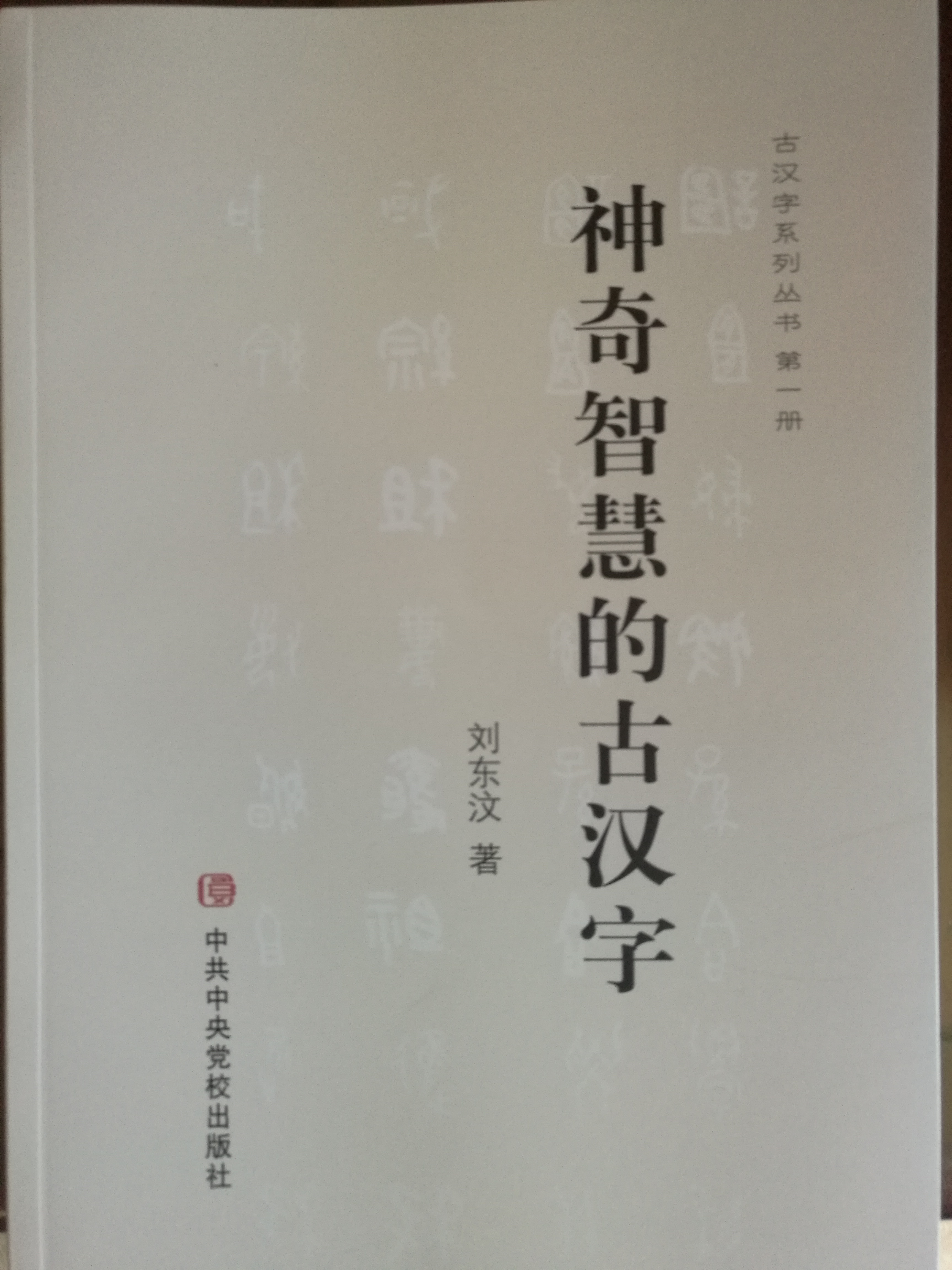
日字。Sun.
甲骨文中的日字就是一个类似于圆圈的字,红日,又成为太阳的象形字。
The sun 日character in oracle bone inscriptions is a word similar to a circle, the red sun becomes the pictograph of the sun.
在隶书、楷书中,日字就与现在的写法基本相同。In official script and regular script, sun 日characters are basically the same as they are now.
此红日对于人类社会,对于自然界的动物和植物,其极端重要性是毫无疑问的。首先,红日是一切生命的源泉。其次,红日还是给世界带来光明的最终源泉,离开红日,人类在黑暗中就无法生产和工作,等等。There is no doubt about the extreme importance of this red sun to human society, to animals and plants in nature. First of all, the red sun is the source of all life. Second, the red sun is the ultimate source of light for the world. Without the red sun, man cannot produce and work in the dark, and so on.
正因为如此,在古汉字中关于日字的论述很多,这里仅举较常使用的日字字义来加于解释。
For this reason, there are many expositions on sun 日characters in ancient Chinese characters, which are explained only by the more commonly used meanings of Japanese characters.
月亮在圆月时,其形状与红日一样,但是,月亮只有在农历十五、十六日时才是圆的,其他二十多天里月亮都是亏的,小于全园的。
When the moon is in full moon, its shape is the same as the red sun. However, the moon is round only on the 15th and 16th of the lunar calendar, and the moon is deficient in the other twenty days, smaller than the whole garden.
由日字组成的词组有:The phrases composed of sun 日 characters are:
日月、日子、日常、日冕、日食、日蚀、日亏、日光、日照、日晒、日霜、日晕、日电池、旬日、昔日、往日、胜利日、纪念日、生日、吉日、忌日、祭日、结婚日、国庆日、蜀犬吠日等。
Sun, moon, day, corona, eclipse, loss of sun, sunlight, sunshine, sun, frost, halo, solar battery, ten days, old days, past days, Victory Day, anniversary, birthday, auspicious day, death day, sacrificial day, wedding day, national day, Shu dog, Vedic, etc.
旦字。
在甲骨文中的旦字由两部分组成,其一是“日”,即红日;其二是“一”,即地面。旦字由“日+一”组成,象形字,表明红日刚刚升起在地平线上,表明黑夜已经过去,新的又一个白天来临。
In oracle bone inscriptions, the word "Dan旦" consists of two parts, one is "sun日", that is, red sun, and the other is "一one", that is, the ground. The red sun is just rising on the horizon, indicating that the night is over and a new day is coming.
旦字本义:天亮,破晓。Denier character meaning daybreak,dawn.
由旦字组成的词组有:The phrases composed of denier characters are:
旦暮、通宵达旦、枕戈待旦、旦望(农历的初一和十五日)、元旦、旦日(a.明天:b.白天)、老旦、花旦、旦夕、旦昔、旦暮等。morning and evening\all through the night\make a pillow of one's spear waiting for daybreak\Dan Wang (first and fifteenth days of the lunar calendar),New Year's Day,tomorrow,an old female character type in Chinese operas, female role in Chinese opera ,this morning or evening -- in a short while ,morning and evening—in a short time
但:人+旦。Human+旦dawn
但字在甲骨文中由“亻+旦”组成。旦,天亮了;亻,指的是男人。表明天亮了,一个男人必须离开自己的女人的时候到了。但字应当是母系氏族社会创造出来的字。
But the word is composed of "you Dan" in the oracle bone inscription. When the morning comes, you mean a man. The time has come for a man to leave his woman at dawn. But the characters should be created by the matriarchal clan society.
在母系氏族的社会中,那时社会生产力低下,几乎所有的人都必须劳动,男子汉当然更应该劳动。在母系氏族社会里,女权高于男权,男子是女子召之即来挥之即去的臣仆,特别是相对于氏族女首领更是如此。与氏族女性同枕共眠一起过性生活的男性,天一亮即使两人还需要温存、亲热,但是,氏族的的规矩不能破坏,男人这时就必须离去他昨晚陪宿的女子,离开女子的卧房,到森林里打猎或者到农田里干活了。
In matriarchal society, productivity was so low that almost all men had to work, much less men. In matrilineal clan society, women's rights are superior to male power, and men are the servants of women's calling, especially relative to gentile female leaders. A man who sleeps with a clan woman and has sex with her, even though they still need warmth and intimacy at daybreak, but the rules of the clan must not be broken, and the man must then leave the woman he slept with last night and leave the woman's bedroom. Hunting in the forest or working in the fields.
这种男子在清晨即将天亮时必须离去他昨晚陪宿女子的规矩,至今在中国的泸沽湖还遗留下来。泸沽湖男女两性的关系还存留母系氏族的社会中的不少规矩。
在隶书、楷书中的但字,其形状和含义与甲骨文中但字相同。
The man, who must leave the rules of last night's stay in the early morning hours, remains in China's Lugu Lake. The relationship between men and women in Lugu Lake also retains many rules in the matrilineal clan society.
In official script, the word "Dan" in regular script has the same shape and meaning as the word "Dan" in oracle bone script.
在现代汉语中,但字主要用于转折词。例如,但是、不但、但书等。In modern Chinese, however, words are mainly used as turning words. For example, but not only, but books, etc.
由但字组成的词组有:不但,但是等。The phrase "Dan" consists of:not only, but
,
疍Tanka::疋shu+旦day。
其含义是天亮了,男人需要(疋)走了,别别扭扭,很不情愿地离开温存中的妻子或者情人,因为要干活了。此疍字指的是天亮后,蛋那样行走,七扭八弯,不情愿,不自在离开的样子。
The implication is that it's dawn, men need to go, awkward, reluctant to leave their gentle wives or lovers because they have to work. This 疍字Tanzi refers to the morning, egg like walking, seven twists and turns, reluctantly, uncomfortable to leave the appearance.
此疍字与但字,含义基本相同。This Tanzi and Dan character, the meaning is basically the same.
朝court:日sun+月moon+十(草)grass+(十)grass。
在甲骨文中,朝字为日(太阳)在东方地平线的草丛中,而月亮则高挂在天空时刻的写照。日月同时出现在天空的现象,在清晨时容易看见。
In oracle bones, the sun is in the grass on the eastern horizon, while the moon hangs high in the sky. The simultaneous appearance of the sun and moon in the sky is easy to see in the early morning.
朝字的本义:清晨时候。The meaning of 朝 characters: early in the morning
在傍晚的天空上也可以看见日月同现天空的现象,但是,傍晚时分的太阳光焰越来越昏暗,因此在西方天幕落日地平线上的草(艹)也就出现的越来越多,莫字在甲骨文中是日处于上下均是草(艹)——两颗以上草的样子。
The sun and moon can be seen in the evening sky, but in the evening, the flame of the sun is getting darker and darker, so the grass on the horizon of the setting sun in the west appears more and more. In oracle bone inscriptions, Mo character is the appearance of two or more grass.
而清晨时分,红日的光焰四射,越来越亮,即使红日刚从地平线上升起时,其明亮的光焰也使得红日跟前的草越来越少。
In the early morning, the red sun flamed and brightened, and even as the red sun rose from the horizon, its bright flame made the red sun less and less grass in front of it.
甲骨文中的朝字,左边是上下均有“十”,即草,这里的两个“十”,其实就是草木等的象形字。中间则是红日。In oracle bone inscription 朝 character, left is above and below have "十ten", namely grass, here two "十ten", in fact is the hieroglyphics of plant and wood. In the middle is the red sun.
这是“朝”字与“莫”(后来用“暮”字代替了)字的最大区别。This is the biggest difference between Chao朝 and Mo莫.
在隶书、楷书中的朝字,与甲骨文中的朝字,从字形到含义均相同。
In official script, the 朝 characters in regular script are the same as the 朝 characters in oracle bone inscriptions.
朝字的含义是:在红日刚刚升起在地平面的草丛中时,那时的天空中仍旧还有月亮在照耀,那就是旭日初升的朝晨。
朝 characters mean:When the red sun had just risen in the grass of the earth, the moon was still shining in the sky, that is, the rising sun in the morning.
朝字与晨字字义相同,都是白天刚到的意思。因此,经常两字联用,比如,朝晨。
The 朝 characters have the same meaning as the morning晨 characters, which are just arrived during the day. Therefore, often two words used together, for example, morning.
由朝字组成的词组有:朝日、朝霞、朝雾、朝露,朝鲜等。
The phrases composed of 朝 characters are:the rising sun morning glow Towards fog morning dew, Korea
莫:艹(草)grass+日sun+大(艹)grass。
在甲骨文中,莫字是红日(日)处于草丛中,红日的上方和下方均是草丛,但不见月亮,是红日即将落到地平线以下,夜色渐浓的样子。
In oracle bones, the red sun is in the grass, the red sun is above and below the grass, but the moon is missing, and the red sun is about to fall below the horizon and the night is thickening.
在甲骨文中的莫字的“艹、大(艹)”表示的都是草丛的意思。很有意思的是,莫字与朝字很有相同的味道:朝字同样红日也在草丛中。问题不同的地方就在于,朝字里天空中有月亮,而在莫字中却看不见月亮。莫字表达的是黄昏红日落下的情景。
In oracle bone inscriptions, the word "Cao, Da" means grass. Interestingly, Mo and 朝characters have the same taste: the same red sun is also in the grass. The difference is that there is a moon in the sky, but no moon in the Mo word. Mo character expresses the scene of the sunset and the setting of the red sun.
莫字本义:傍晚落日时分。莫字也表示黑暗的意思。
The original meaning: sunset in the evening. Mo word also means darkness.
后来莫字使用中发生转义,用作“拒绝”、“不同意”等含意,这样表达黄昏的字就由“暮”字来代替。Later, the meaning of "refuse" and "disagree" occurred in the use of Mo characters, so the words expressing dusk were replaced by the word "twilight".
由莫字组成的词组有:约莫、莫不、莫如、莫逆、莫夜、莫若、旦莫、日莫、莫得、莫敢、莫府、莫测、切莫、莫是、莫道、朝莫等。
The following phrases are composed of Mo characters:about、there's no one who doesn't or isn't 、would be better、very friendly、No night
墓 tomb:莫+土soil。堆土为墓,墓中藏棺木,墓中是无暗无天日的,也是人死后被埋葬的地方。The tomb contains coffins, and there is no darkness in the tomb. It is also the place to be buried after death.
墓字本义:埋葬死人的地方。The original meaning of Tomb characters A place where dead people are buried.
由墓字组词有:墓穴、墓地、墓园、墓道、墓碑、坟墓、墓志铭。
The words of the tomb are composed of:grave 、cemetery、city of the dead 、path leading to a grave、grave monument、grave、epitaph
幕covering cloth, silk or felt:莫+巾 a piece of cloth (as used for a towel, scarf, kerchief, etc.)。
幕字本义:覆布,遮挡日光的大块布巾。比如:帐篷的顶布和四周的布,遮挡光线和风雨,也有御寒的作用。在现代戏剧未开始,或者一段戏剧结束時也会使用幕布,使幕后演员位置到位,给观众的演出效果好。
The original meaning of the Curtain word:
A large cloth towel that covers the sun. For example: tent top cloth and surrounding cloth, shelter from light and wind and rain, also has the function of protection from the cold. A curtain will also be used at the beginning of a modern play or at the end of a play to put the actors behind the scenes in place and give the audience a good performance.
幕字本义为:能够遮风挡雨、遮挡阳光的布帛,称为幕。
The original meaning of the screen word is The cloth that can protect against the wind and rain and the sun is called a curtain.
由幕字组成的词组有:开幕、揭幕、序幕、闭幕、落幕、内幕、黑幕、帷幕、幕布等。
The phrases composed of screen characters are: Opening 、unveil (a monument, etc.) prologue
falling of the curtain、ring down the curtain 、what goes on behind the scenes、inside story of a plot, shady deal, etc. Parocheth、Curtain, etc.
免dismiss字。
免字与兔字很相像。The free word is very similar to the rabbit character.
但是,兔字比起免字少一点。危险时刻,遇到强敌要吃它的时候,兔子有断尾求活的表现。兔子掉了尾巴,但是性命保住了。兔子这是幸运逃脱了。而后断掉的尾巴还能够再长出来。但是,对于兔子来说也算死过一次了。
However, the rabbit character is a little less than the free word. In dangerous times, when a strong enemy wants to eat it, the rabbit has a broken tail to live. The rabbit lost its tail, but saved its life. The rabbit was lucky to escape. Then the broken tail can grow again. But the rabbit was dead once.
免字的含义有:1去掉,除掉,免除等含义。The meaning of exempt word has: 1 remove, exempt and so on meaning.
由免字组成的词组有:免税,免费,免官,免检。罢免,豁免,避免,闲人免进等。Phrases consisting of word-free words are:free of duty、free、be removed from a position 、exemption 、recall、 exempt (from taxes or from customs inspection, etc.)、avoid、No admittance except on business.
兔字古同“勉”,勉励。古同“娩”,分娩。The word "Mian" in the ancient times of the rabbit is encouraged.To give birth.
晚evening:日sun+免dismiss。
免字是兔字少了一点,也就是兔子因为丢失自己的尾巴而免除了生命的危厄灾难;免就是兔子又跑回到自己的避难所,继续生存下来了。免字也是兔子跑得无影无踪的意思。
To avoid the word rabbit is a little less, that is, the rabbit lost his tail and saved his life from the disaster; or the rabbit ran back to his sanctuary and continued to survive. The word free also means that the rabbit runs without a trace.
晚:日+免,表示红日被免除了,但准确的说法是红日落山了,明天红日会照样升起的。在红日落山的时候,就是晚间黑夜的时候。
Evening: day free,The red sun is exonerated, but it is accurate to say that the red sun is down and the red sun will rise tomorrow. When the red sun sets, it is night and night.
晚字本义:1傍晚,黄昏。2太阳落了的时候。
Late word meaning:in the evening, in the evening, when the sun fell。
由晚字组成的词组有:晚景,晚霞,晚会,晚报,来晚了,晚年,晚期,晚节,晚婚,晚生(旧时文人对前辈的自谦),晚辈等。
The following phrases consist of late words: evening scene、sunset glow、an evening of entertainment、evening paper 、It's late.、old age、later period、integrity in one's later years 、Late Festival、marry at a mature age、the younger generation

